Discover Radio Advisory
Radio Advisory

Radio Advisory
Author: Advisory Board
Subscribed: 116,941Played: 511,172Subscribe
Share
© 2025 Advisory Board
Description
A top podcast for healthcare leaders, with over one million downloads, Radio Advisory is your weekly download on how to untangle the industry's most pressing challenges to help leaders like you make the best business decisions for your organization.
From unpacking major trends in care delivery—like site-of-care shifts and the rise of high-cost drugs—to demystifying stakeholder dynamics, to shining a spotlight on priorities that may get overlooked, we're here to help. Our hosts and seasoned researchers talk with industry experts to equip you with knowledge to confront today's unanswered questions in healthcare. New episodes drop every Tuesday. | www.advisory.com
From unpacking major trends in care delivery—like site-of-care shifts and the rise of high-cost drugs—to demystifying stakeholder dynamics, to shining a spotlight on priorities that may get overlooked, we're here to help. Our hosts and seasoned researchers talk with industry experts to equip you with knowledge to confront today's unanswered questions in healthcare. New episodes drop every Tuesday. | www.advisory.com
300 Episodes
Reverse
Advisory Board is here to do two things: tackle the toughest questions keeping healthcare leaders up at night, and push leaders' thinking on the questions they aren’t asking – but should be. In 2025, we navigated a landscape of major shifts, from policy changes, the growing presence of AI, drug innovations, and more. As we head into 2026, we are keeping that momentum going to deliver the insights you need to stay ahead.
That’s why this week, hosts Rachel (Rae) Woods and Abby Burns pass the microphone to six Advisory Board researchers to preview their top questions and topics on our research agenda for the new year. They’ll unpack what they’re researching, why it matters, and why these topics deserve your attention.
[1:30] Ty Aderhold on cutting through the AI hype
[4:15] Monica Westhead on margin management and hospital efficiency
[7:08] Sally Kim on cutting costs and scaling health plan operations
[9:45] Sebastian Beckmann on prioritizing sustainable growth through smarter forecasting and analytics
[14:08] Kaci Plattenburg on rethinking service line growth strategies
[16:27] Chloe Bakst on navigating the pharmacy policy shakeup
We’re here to help:
Read Advisory Board’s 2026 research agenda
The state of the industry: Key insights for 2026
249: What is 340B, and why is it in the hot seat
267: Care variation reduction: A $100B opportunity
What’s driving — or slowing — service line growth?
270: Service line snapshot: What every health leader needs to know
276: The AI gold rush is changing how humans (and clinicians) make decisions
[Tools] Use Advisory Board tools to inform your strategy for growth, cost control, and more.
We want to hear from you. What are your challenges? Where are you seeing opportunities? Email us at podcasts@advisory.com
Learn about Advisory Board Research Membership.
How the collaborative care model improves access to behavioral healthcare
How We Approach Behavioral Health Integration | evolvedMD
A transcript of this episode as well as more information and resources can be found on RadioAdvisory.advisory.com.
The national spotlight on food and chronic disease management is intensifying, especially given the momentum of the “Make America Healthy Again” movement. This presents an opportunity to finally move the needle on incorporating healthy food and nutrition into care delivery — but our traditional healthcare system is not set up to do this well, or at scale. Healthcare leaders need to learn from the experts who have been doing this work successfully in their communities.
That’s why this week, live from Advisory Board’s Nashville Summit, host Abby Burns speaks with Tomi Ogundimu, Chair of the Board of DC Greens, a nonprofit based in Washington, D.C., and Angela Fitch, MD, Cofounder and Chief Medical Officer of Knownwell, a comprehensive primary care and metabolic health clinic. Our guests will share what it looks like to put the principles of “food as medicine” into practice and how the traditional delivery system can adapt to help realize these principles at scale.
We’re here to help:
DC Greens – Healthy food is a human right.
knownwell, weight-inclusive healthcare for all
Provider-led strategies to address food insecurity
3 keys to effective partnerships with community-based organizations
3 Imperatives for Investing in Successful Community Partnerships
The state of the industry: Key insights for 2026
A transcript of this episode as well as more information and resources can be found on RadioAdvisory.advisory.com.
In last week’s episode, Advisory Board experts explored why leaders have a responsibility to combat rising patient distrust. The challenge? Most providers aren’t prepared — and often haven’t been taught — how to respond effectively.
Distrust isn’t just about debunking misinformation. The combination of low-quality research and panic headlines has made it harder for both providers and patients to separate credible science from misinformation. But there are actionable strategies leaders can use to identify what fuels mistrust and effectively communicate with patients in ways that build confidence.
This week, host Rachel (Rae) Woods sits down with Dr. Emily Oster — economist, Brown University professor, New York Times bestselling author, and Founder & CEO of ParentData — to unpack her approach to effective health communication. Throughout the episode, they unpack why scientific skepticism is growing and why the delivery of health information — not just expertise — is critical to engaging patients.
We’re here to help:
Ep. 277: Patient distrust is costing you. Here’s how to rebuild it.
ParentData by Emily Oster ParentData is a data-driven guide through pregnancy, parenthood, and beyond.
ParentData with Emily Oster | Apple Podcasts
Want to see how upcoming policy changes could reshape the industry and impact your patients? Explore our Healthcare Policy Timeline to stay ahead of key developments and prepare for what’s next.
Vaccine policies keep changing. Here's what you can do to prepare.
2025 Advisory Board December Virtual Summit
Discover how Lifestyle Spending Accounts (LSAs) are transforming employer benefit strategies to support whole-employee health and well-being.
Sign up for our Dec. 16 webinar: The state of the industry: Key insights for 2026
A transcript of this episode as well as more information and resources can be found on RadioAdvisory.advisory.com.
Patient dissatisfaction with the healthcare system has long been a concern — but today, it’s something far more serious: outright distrust. Between 2023 and 2025, the share of Americans who don’t trust their doctor at all to make the right recommendations jumped by eight percentage points. Now, nearly one in six patients lack confidence in their physician.
Let’s be clear: patient distrust may not be the fault of health leaders — but it is absolutely their problem to solve. Rebuilding trust is a business imperative because distrust affects clinical quality, workforce stability, public health, and the financial health of organizations.
In this episode, host Rachel (Rae) Woods sits down with Advisory Board experts Morghen Philippi and Matt Cornner to unpack how the industry reached this point, why trust is a strategic asset, and what health leaders can do to start rebuilding it.
We’re here to help:
Harvard Business Review: The 3 Elements of Trust
Nature: Human neuroscience is entering a new era — it mustn’t forget its human dimension
Want to see how upcoming policy changes could reshape the industry and impact your patients? Explore our Healthcare Policy Timeline to stay ahead of key developments and prepare for what’s next.
Vaccine policies keep changing. Here's what you can do to prepare.
2025 Advisory Board December Virtual Summit
A transcript of this episode as well as more information and resources can be found on RadioAdvisory.advisory.com.
We’re in the midst of an AI gold rush. Every corner of healthcare is racing to harness generative AI for productivity and cost savings. But here’s the catch: healthcare isn’t Silicon Valley. The mantra of “move fast and break things” doesn’t work in a high-risk, complex environment. When it comes to AI in healthcare, safety and effectiveness must come before speed.
This week on Radio Advisory, guest host and Advisory Board digital health expert Ty Aderhold sits down with David Woods, Mike Rayo, and Dane Morey from the Cognitive Systems Engineering Lab at The Ohio State University. Drawing on new research about how AI changes human decision-making, they unpack the risks and realities of AI in healthcare, challenge common misconceptions, and ask critical questions—like whether AI can recognize and communicate its own errors.
Bottom line: There is no risk-free use of AI in healthcare. To truly evaluate safety and effectiveness, leaders must assess AI-human systems as a whole—not in isolation.
Plus, stay tuned for an update on the end of the longest government shut down in U.S. history, and the healthcare programs (still) caught in the crosshairs.
We’re here to help:
Empirically derived evaluation requirements for responsible deployments of AI in safety-critical settings
How AI Can Degrade Human Performance in High-Stakes Settings
The Silicon Valley Way: Move fast and break…aviation safety?
Cognitive Systems Engineering Lab | Innovation at the Intersection of People, Technology, and Work
Your playbook for developing an AI governance strategy
How to succeed using AI: Lessons from 4 leading organizations
[Dec. 4] The healthcare leader's to-do list for successful AI adoption
3 ways to get the most out of contingent nursing workforce partnerships
A transcript of this episode as well as more information and resources can be found on RadioAdvisory.advisory.com.
Nearly 16 million veterans live in the United States, and while 9 million receive care through the Veterans Health Administration, about 40% rely entirely on civilian healthcare. That’s where the challenge begins: many veterans are navigating a system that isn’t designed for their unique health needs.
Veterans outside the VA system often face barriers that lead to poorer outcomes—delays in diagnosis, fragmented care, and overlooked service-related conditions. The healthcare system must do better.
In this episode of Radio Advisory, host Rachel (Rae) Woods talks with Optum Serve experts Christi Kruse and Christine Erspamer about what it takes to close this gap. Drawing on their in-depth ethnographic research, Christi and Christine explore why understanding the veteran patient journey is critical, how to integrate data-driven population health strategies, and the role of publicly available tools and guidelines, along with other practical solutions.
The conversation doesn’t stop at veterans. These insights can help healthcare leaders better serve other vulnerable populations, too.
Stay tuned through the end of the episode for a special message from Optum Serve CEO Ed Weinberg, as he shares how Optum Serve is honoring the lived experiences of veterans and military families, and calls on clinical providers to lead with compassion, consistency, and purpose.
We’re here to help:
Research Study: Caring for Veterans and Military Families
Devoted to Improving Lives Across the Nation | Optum Business
Military & Veteran Health Care Journey: Infographic
Join us for an upcoming State of the Industry webinars, where Advisory Board experts will challenge three long-standing assumptions about the healthcare industry — and reveal the powerful new dynamics reshaping the future.
Learn more about Optum Advisory: Healthcare consulting services
A transcript of this episode as well as more information and resources can be found on RadioAdvisory.advisory.com.
Nurse turnover rates have improved since the pandemic peak, but that doesn’t mean we’re out of the woods: 40% of nurses report that they intend to leave their job within five years. As nurse leaders turn their attention from fighting fires to finding strategic levers for nurse retention, they may be missing a surprising opportunity: career pathing.
Nurse career pathing has traditionally aimed at a core goal: to keep nurses at the bedside for as long as possible. But our research found that, to build a sustainable nursing workforce, nurse leaders need to focus on nurse engagement—not just retention.
This week, host Abby Burns sits down with Advisory Board nursing experts Miles Cottier and Allyson Paiewonsky. They break down the state of the nursing workforce and what it looks like to do career pathing in a way that better balances nurses’ needs with those of the organizations. Hint: the path may look less like a ladder, and more like a branching river.
We’re here to help:
Radio Advisory Nursing playlist
Ep. 245: Headcount might not explain your labor challenges. What will?
Survey insights: Strategic imperatives for a sustainable nursing workforce
New nurses say they're struggling. Here's how to help them.
4 ways to retain early career nurses
Explore how Advisory Board resources can support your organization's journey
A transcript of this episode as well as more information and resources can be found on RadioAdvisory.advisory.com.
In 2025, health systems are facing a relentless set of headwinds—from policy upheaval and shifting demographics to rising costs and rural access challenges. For some organizations, these pressures form a perfect storm.
At Advisory Board’s Chicago Summit, host Rachel (Rae) Woods sat down with MaineHealth COO Kelly Elkins to explore how the $4B, 13-hospital Academic system is navigating these pressures without defaulting to survival mode. MaineHealth has achieved three consecutive years of $100M margin improvement by focusing on operational efficiency, scenario planning, and a three-lane growth strategy: strengthening core services, expanding into ambulatory care, and investing in adjacent businesses.
Learn more about their approach—including their partnership with Optum Advisory—to sustain and scale care delivery across Maine and New Hampshire.
We’re here to help:
MaineHealth | Working together so our communities are the healthiest in America
Healthcare Policy Updates Timeline
One Big Beautiful Bill Act: Understanding the healthcare impacts
Strategic Planner's survey 2025
Want to be at our next live Radio Advisory recording? Learn more about upcoming Advisory Board events.
A transcript of this episode as well as more information and resources can be found on RadioAdvisory.advisory.com.
To make philanthropy a reliable revenue stream, health systems need more than just generous donors—they need strategy, structure, and sustained investment.
In this episode, Abby Burns speaks with Advisory Board philanthropy expert and founder of Twin Point Insights, Erin Lanahan, about how not-for-profit health systems can build high-performing fundraising programs. They explore the “four Cs” of effective philanthropy—clear expectations, consistent resourcing, compelling priorities, and committed allies—and unpack how leaders can apply these principles to boost ROI, strengthen donor relationships, and ensure long-term financial sustainability.
We’re here to help:
Healthcare Campaign Survey #1: Campaign Context
4 imperatives for successful fundraising campaigns
[Ongoing research] Twin Point Insights: Healthcare Campaign Survey Series
[Roundtable] HOME - Modernizing grateful engagement in a time of healthcare transformation
[On-demand webinar] What the future of health system growth means for philanthropy leaders
[On-demand webinar] Using market data to inform your philanthropy strategy
[On-demand webinar] State of the industry: Exploring the future of healthcare philanthropy
Key findings from the Medicare Advantage vision insurance consumer survey
Oral oncolytics: Strategies for improving adherence and persistence
A transcript of this episode as well as more information and resources can be found on RadioAdvisory.advisory.com.
Ochsner Health has been pushing the envelope on value-based care for decades. The New Orleans-based system has succeeded in driving significant cost savings—while improving quality— states that traditionally rank lower in America's Health Rankings The question is: how do they do it?
This week, host Abby Burns invites Ochsner Health Network’s Eric Gallagher, CEO and Dr. Beau Raymond, CMO to unpack their approach to building out a successful value-based care engine. Throughout the conversation, they share:
How they measure success (and what they’ve achieved)
How they evolved their system to the one they have in place today
What true payer-provider partnership does—and doesn’t—look like to them
How they are fine-tuning their value-based care tactics to meet oncoming headwinds
We’re here to help:
Expert Care in Louisiana and Beyond | Ochsner Health
How Ochsner Health grounded its VBC success in a culture of innovation
Radio Advisory Value-Based Care playlist
Ep. 243: What’s now and what’s next in value-based care
Ep. 250: VBC success is possible. Here's how Advocate Health does it.
Value-Based Care landing page
Help manage the long-term effects of COVID-19 with timely care
A transcript of this episode as well as more information and resources can be found on RadioAdvisory.advisory.com.
Each year, Advisory Board delivers an update on the most significant trends shaping service line strategy – identifying exactly what service line and strategy leaders should prioritize in the year ahead.
In this episode, host Rae Woods is joined by Advisory Board experts Lindsey Paul, Kristin Strubel, Gabriela Marmolejos, and Ellie Wiles to unpack the universal challenges specialties are facing as we head into 2026.
Throughout the conversation, you’ll hear how access constraints, workforce pressures, policy changes, and innovative payment models are influencing key service lines—including oncology, cardiovascular, women’s health, and neurology.
Looking for insights on a specific service line? Jump ahead using the timestamps below:
1:26 – 6:50: Lindsay Paul on oncology
6:51 – 12:14: Kristen Strubel on cardiovascular
14:08 – 22:29: Gabriela Marmolejos on women’s health
22:30 – 27:58: Ellie Wiles on neurology
We’re here to help:
Oncology service line outlook – 2025
Cardiovascular service line outlook – 2025
Women’s health service line outlook – 2025
Neurosciences service line outlook – 2025
Orthopedics service line outlook – 2025
Watch our member testimonials and learn about upcoming Advisory Board events
Blood-based colorectal screening: A closer look for health plans
A transcript of this episode as well as more information and resources can be found on RadioAdvisory.advisory.com.
In this special episode of Radio Advisory, recorded at 9:30 a.m. ET on Oct. 1, 2025, host Rae Woods walks through two major healthcare policy disruptions: the federal government shutdown and the Rural Health Transformation Program.
Rae explains the immediate implications for care delivery and funding as Medicare telehealth and Hospital-at-Home waivers expire and debates over ACA tax credits and Medicaid work requirements stall in Congress.
She also unpacks new guidance from CMS on the $50 billion Rural Health Transformation Program, outlining what leaders must do to apply for funding before the November 5th deadline and best position themselves to support their rural communities.
We’re here to help:
Healthcare Policy Updates Timeline
Health policy roundup: CMS opens applications for $50B rural health fund
A transcript of this episode as well as more information and resources can be found on RadioAdvisory.advisory.com.
For years, health systems have approached ambulatory care as a pipeline for inpatient volumes. But today’s health care environment calls for a new mindset—one that prioritizes ambulatory capabilities designed to drive enterprise-wide success.
Challenging this longstanding approach is just the first step.
In this episode, host Rachel (Rae) Woods welcomes Advisory Board experts Nick Hula and Lauren Woodrow to explore why the ambulatory network of the future demands getting better before getting bigger. Smart growth isn’t just about expansion—it’s about focusing on operational efficiency, breaking clinicians’ attachment to specific sites, and leveraging partnerships to unlock the full potential of ambulatory care.
We’re here to help:
Ep. 238: Is your ambulatory strategy stuck in 2015?
It’s time for systems to change how they prioritize and design their ambulatory strategy
[Webinar] How to build the ambulatory network of the future
Q&A: How Optum Financial is modernizing healthcare payment delivery
[Webinar] Care variation reduction: A $100B savings opportunity
A transcript of this episode as well as more information and resources can be found on RadioAdvisory.advisory.com.
Health systems know they need to pull out all the stops when it comes to improving operational efficiency, given their financial climate. That doesn’t necessarily mean they need entirely new strategies — but they do need to make the most of the tried-and-true tactics.
Care variation reduction (CVR) has been part of the operational excellence playbook for years. The opportunity for efficiency and cost savings through CVR is massive—about $100B nationally — but the vast majority of health systems have not been able to unlock its full potential.
This week, host Abby Burns invites Advisory Board provider operations expert Isis Monteiro to break down what’s getting in the way of realizing that $100B, and how leaders can start to move the needle.
We’re here to help:
Ep. 239: UNC Health: The care variation reduction story you need to hear
Care Variation Reduction Assessment
Identify your biggest opportunities for care variation reduction
6 strategies to improve your operating margins and financial resilience
[Webinar] Care variation reduction: A $100B savings opportunity
Learn from the 100+ health system finance leaders who participated in Advisory Board's capital spending survey — and find out how health systems are making capital decisions today.
A transcript of this episode as well as more information and resources can be found on RadioAdvisory.advisory.com.
Making the most of the electronic health record (EHR) is not just a win for the CIO—it’s a non-negotiable for sustaining your business, supporting your workforce and serving your patients effectively.
The EHR is a mainstay of our digital healthcare infrastructure. It’s a massive ongoing investment with the potential for enormous operational and strategic returns. But the fact is, most organizations are not reaping the kinds of returns they could be.
This week, host Abby Burns invites Advisory Board digital health and AI expert Ty Aderhold and Optum Advisory Vice Presidents of Provider Technology Carol Chouinard and Jonathan Cooper to break down the missed opportunities, and why under-leveraging the EHR now matters for an AI-enabled future.
We’re here to help:
6 pitfalls to avoid when planning an EHR implementation
How to effectively prepare for (and implement) an EHR switch
4 questions to ask yourself before an EHR data conversion
Want support assessing, optimizing, or converting your EMR? Get in touch with Optum Advisory’s EHR Services team. Or we can help you reach out directly. Email us at podcasts@advisory.com with the subject line "Help with EHR".
Research Membership
A transcript of this episode as well as more information and resources can be found on RadioAdvisory.advisory.com.
In this special episode of Radio Advisory, recorded on September 10th, 2025, host Rae Woods explains how recent federal actions led by HHS Secretary RFK Jr. are shaping vaccine policy and public health infrastructure.
As she unpacks what’s happened so far, Rae outlines the implications for vaccine access, public trust, and hospital readiness. She also offers clear guidance to health leaders: clarify your communication with staff and patients, prepare for seasonal surges, and work together to track the effects of policy shifts on the cost and quality of care.
We’re here to help:
Healthcare Policy Updates Timeline
How research funding cuts are impacting healthcare (and how to respond)
240: Hospitals are at capacity. What can we actually do about it?
A transcript of this episode as well as more information and resources can be found on RadioAdvisory.advisory.com.
In the past several months, the Trump administration has frozen, cancelled, or rescinded millions—even billions—of dollars in federal funding for scientific and clinical research. This is funding that flows directly from bodies like the NIH to universities, academic medical centers, and others to facilitate basic science research, translational research, public health initiatives, and more.
Frankly, many organizations did not see these cuts coming—at least not at this scale. And the impacts are likely to touch most every corner of the industry.
This week, host Abby Burns sits down with Advisory Board experts Emily Heuser and Gaby Marmolejos to dig into how these cuts are being orchestrated and the ripple effects they may cause across—and even beyond—the healthcare industry.
We’re here to help:
Read: How research funding cuts are impacting healthcare (and how to respond)
Check out: Healthcare policy updates
Check out: Philanthropy
Keep track: Healthcare Policy Updates Timeline
Use our tool: How policy changes will impact your bottom line
Research Membership
Grant Witness
Navigating healthcare’s next frontier: 5 takeaways from the CHG Healthcare Executive Summit
A transcript of this episode as well as more information and resources can be found on RadioAdvisory.advisory.com.
This episode originally aired on April 15, 2025.
In times of uncertainty, it’s easy to feel overwhelmed by what’s out of your control. That’s why over the next few weeks we’re revisiting three powerful conversations that remind us where to focus: on operational excellence, on what is within your control, and on the urgency to act now. Whether you're navigating workforce challenges, financial pressures, or strategic pivots, these episodes offer practical insights to help you retrench, refocus, and lead with clarity.
Let’s face it: Hospitals and post-acute providers can find themselves at odds. Post-acute is an area of the industry that is often misunderstood and sometimes villainized. But when post-acute care struggles, it directly impacts hospital operations. The industry needs a solution. It starts with understanding that the post-acute space is not a monolith. Because only by understanding how different facilities struggle—and how systems can support or partner with them—can we unlock their potential.
That’s why this week, host Abby Burns invites Advisory Board expert Monica Westhead, and Optum Advisory post-acute care expert Jennifer Skaggs to unpack the post-acute landscape and break down what effective acute-post-acute partnerships looks like. Throughout the discussion, they explore why post-acute facilities are struggling to stay afloat, and why partnering with post-acute facilities is better avenue than building or buying.
We’re here to help:
Optum Advisory partners with hospitals nationwide to improve efficiency and optimize resource utilization to reduce labor expenses.
The Playbook for Hospital/Post-Acute Care Collaboration
New staffing mandates for SNFs will have broad effects. Here's how to prepare.
Post-acute care landing page
Join 165,000+ healthcare leaders and get the industry’s most important news in your inbox—every day.
A transcript of this episode as well as more information and resources can be found on RadioAdvisory.advisory.com.
(This episode originally aired on February 25, 2025.)
In times of uncertainty, it’s easy to feel overwhelmed by what’s out of your control. That’s why over the next few weeks we’re revisiting three powerful conversations that remind us where to focus: on operational excellence, on what is within your control, and on the urgency to act now. Whether you're navigating workforce challenges, financial pressures, or strategic pivots, these episodes offer practical insights to help you retrench, refocus, and lead with clarity.
We’ve said it before on Radio Advisory: hospital volumes are back. But leaders know this isn’t necessarily a sigh of relief. With a lot of hospitals at—or even over-- capacity, hospital leaders need to find ways to improve patient throughput and reduce length of stay. And trust me, they’ve been trying. The question is, why is it so hard to address capacity and length of stay, and what can leaders do about it in 2025?
This week, host Rachel (Rae) Woods is joined by Advisory Board expert Isis Monteiro. Isis shares what she learned from her “world tour” of talking with 45 healthcare leaders from nine countries to understand how they’re tackling capacity challenges. Throughout the conversation, they break down three root causes of high hospital length of stay and highlight examples of how organizations are overcoming them.
We’re here to help:
Ep. 225: Patients are back – so why aren't hospital margins?
Ep. 221: How will health system growth look different in 2025 and beyond?
Provider Operations landing page
Interested in learning more about our length-of-stay reduction research? Join us live at an Advisory Board Summit and attend a dedicated session on how your organization can address foundational capacity, throughput, and length-of-stay challenges.
Check out Advisory Board’s Hospital Benchmark Generator tool to see how your hospital’s length-of-stay stacks up and pinpoint improvement opportunities for improvement to remain competitive.
(This episode originally aired on October 1, 2024.)
In times of uncertainty, it’s easy to feel overwhelmed by what’s out of your control. That’s why over the next few weeks we’re revisiting three powerful conversations that remind us where to focus: on operational excellence, on what is within your control, and on the urgency to act now. Whether you're navigating workforce challenges, financial pressures, or strategic pivots, these episodes offer practical insights to help you retrench, refocus, and lead with clarity.
In the past, we’ve told our listeners that the number one area of focus for health system growth is operational excellence, and a major part of that is capturing all of the revenue on the table from your medical group. Healthcare organizations have spent the last decade buying up medical groups and physicians, in part because of the “promise” of downstream referrals. It is a long-held belief that physician employment leads to higher referral integrity. But according to an Advisory Board data analysis, that doesn’t hold true - just 55% of total referral revenue attributed to employed PCPs is realized in-network.
This week, host Rachel (Rae) Woods invites Advisory Board physician experts Eliza Dailey and Colleen Wagner to unpack where referral leakage actually happens and share the real (and relatively easy) steps organizations can take to reduce referral leakage.
We’re here to help:
Tools to reduce referral leakage in the medical group
Are employed PCPs more likely to refer within their health systems?
Ep. 221: How will health system growth look different in 2025 and beyond?
Medical group integration
3 shifts impacting medical groups: 2024 update on the physician landscap
Join 165,000+ healthcare leaders and get the industry’s most important news in your inbox—every day.



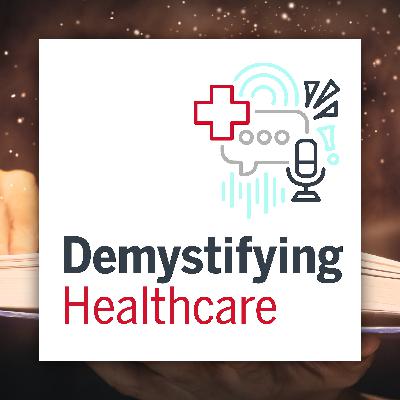
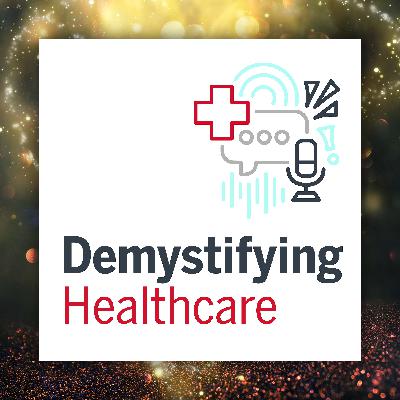
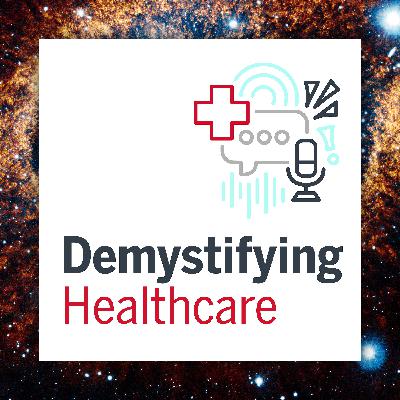
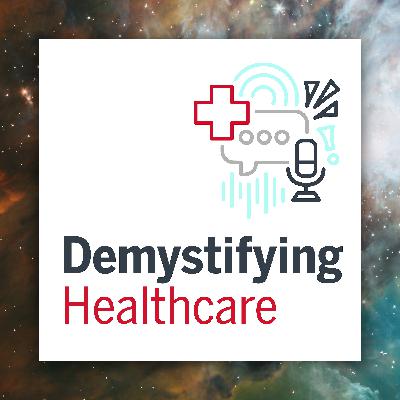

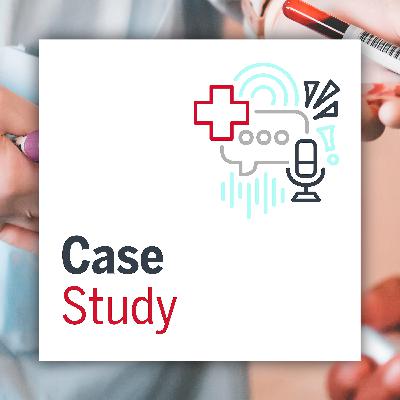
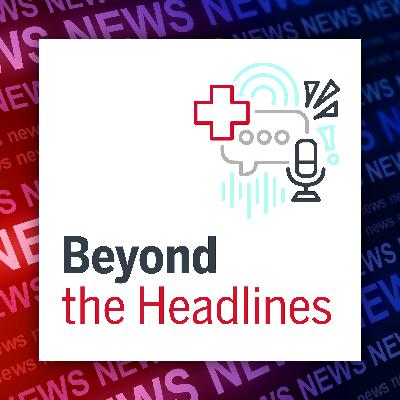
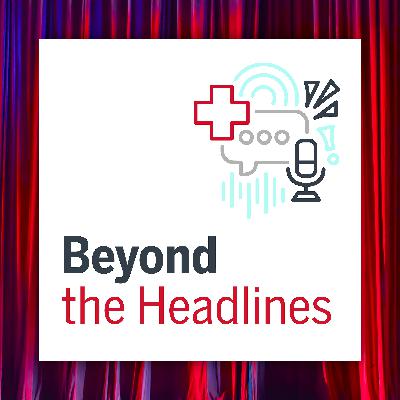
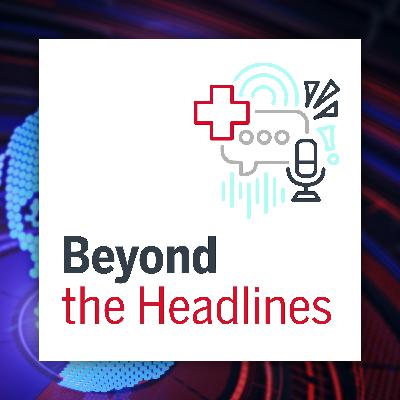



At Micet Craft, we recognize that each brewery has unique requirements. That’s why we offer custom solutions tailored to fit your specific brewing needs. Our expert team collaborates with you to design equipment that optimizes your workflow while maintaining high quality. Whether you’re launching a startup or expanding an existing operation, Micet Craft provides the perfect brewing equipment to elevate your craft.https://www.micetcraft.com/fermentation-tank/
Thor Sound Booster
sogood voice the better peace world..♥️🎉🧿